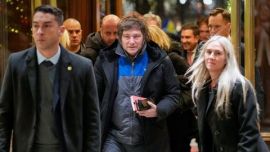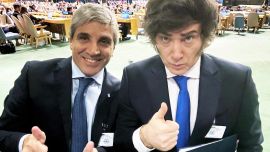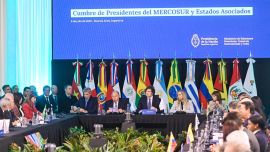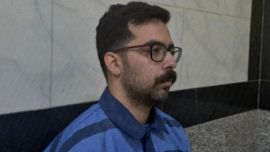The stories of the rescuers of the Holocaust have two great points in common. All resisted joining the camp of horror, risking what they were and had. No-one, in any way, was exempt from the high price that the noblest actions carry in certain periods of history.
These stories of solidarity and civic courage allow us to know the paths that each of the heroes travelled and the singularity of each exploit.
Let us take the case of Giorgio Perlasca (born Como, 1910 - died Padua, 1992), a Spanish "consul" in Budapest between December 1944 and January 1945. August 15 marked a new anniversary of his death.
True to his status as supporter of the nationalist ideas of Gabriele D’Annunzio, he volunteered to fight on the side of Francisco Franco in the Spanish Civil War. After the conflict, he returned to Italy where he was surprised by the beginning of World War II and the alliance between Mussolini and Hitler. It was at that moment that Perlasca abandoned fascism and decided in his privacy to remain loyal only to King Victor Emanuel III. The old resentment towards Germany, a country against which Italy had fought in the first war, and the German racial laws of 1935 put a limit to its exacerbated patriotism. "I was neither fascist nor anti-fascist; I was anti-Nazi," he would tell much later.
Autumn of 1943 found him in Budapest as an official delegate of the Italian government with diplomatic status. He had been sent to Eastern European countries with the mission of buying meat for the Italian Army.
On October 8, US General Dwight Eisenhower announced the unconditional surrender of Italy to the Allied Forces. Perlasca then makes publicly his oath to the Italian monarch, which costs him his freedom. The Hungarian government, threatened by Germany, takes him prisoner and confines him in a castle reserved for diplomats.
After a few months in captivity, he took advantage of a medical pass that allowed him to travel within Budapest to escape and seek asylum at the Embassy of Spain, the country of his youthful adventures. Thanks to his status as a veteran, suddenly Giorgio was renamed ‘Jorge,’ with the same rights as a Spanish citizen.
He immediately began to collaborate with the rescue actions of Jews carried out by Ángel Sanz Briz, the consul in charge of the legation, in close collaboration with other diplomatic missions such as those of Switzerland, Sweden, Portugal and the Vatican.
When Sanz Briz was forced to leave Hungary at the end of 1944, the authorities had the opportunity to advance on the Spanish protection houses where persecuted Jews were housed. Right away, and to avoid the worst, Perlasca made the Interior Ministry believe that Sanz Briz had named him his successor.
He named himself Spain’s ambassador. On an official letterhead he wrote his appointment as representative of the Franco government. He handed over false documentation to the Hungarian Foreign Ministry, who accepted it without reservation. He then put into his custody thousands of refugees hidden in Spanish houses and, like Raoul Wallenberg, negotiated with the Nazi hounds to get off the trains as many people condemned to die exterminated in Auschwitz.
He wrote letters of protection based on a 1924 law through which Spanish citizenship was granted to all Sephardic Jews. "The relatives of Spaniards in Hungary require your presence in Spain. Until communications are resumed and the trip is possible, they will remain here under the protection of the Spanish government,” they read.
With the Red Army in Budapest and the certainty that around 5,200 Jews were safe, Perlasca began a long return to Italy.
‘Jorge’ kept this incredible adventure a secret for more than 30 years, until a group of women from a Jewish community in Hungary began tracking down the Spanish diplomat who had saved their lives.
Before dying, on August 15, 1992, in Padua, the city in which he had grown up, Perlasca delivered valuable testimony to the memory of nations.
by Eduardo Eurnekian, Baruch Tenembaum & the Raoul Wallenberg Foundation





















Comments